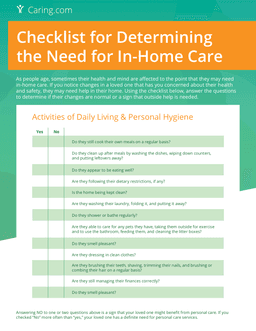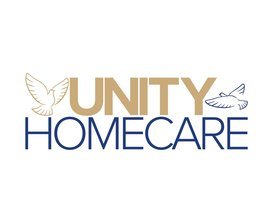The 10 Best Home Care Agencies for Seniors in Quincy, MA for 2025
Caring.com offers a free service to help families find senior care and authentic reviews to help you in your decision. On average in Quincy, MA, residents and their loved ones rate In Home Care agencies 5.0 out of 5 stars across the 68 options below.
Home Care Services in Quincy, Massachusetts
68 Results
Filters
68 Results

"Sundry Healthcare, Inc. is dedicated to providing compassionate, personalized, and inclusive care tailored to meet the unique needs of each ..."
READ MOREWhat you can do with Caring
Paying for Home Care in Quincy, MA
The Cost of Home Care in Quincy, MA
According to the 2021 Genworth Cost of Care Survey, home care services in the Quincy area are $381 per month more expensive than the Massachusetts state average, and $1,335 more expensive than the national average. This price is $381 cheaper than in the Barnstable area of Cape Cod. The lowest prices in Massachusetts are on the western side of the state, where costs in places like Springfield are $953 lower per month than in Quincy.
Quincy
$6,292
Massachusetts
$5,911
The United States
$4,957
Barnstable
$6,673
Worcester
$5,720
Springfield
$5,339
The Cost of Home Care vs. Other Senior Care Options in Quincy, MA
Quincy seniors have a variety of elder care options, especially if they head into Boston. Home care and home health care have very similar costs, with home health care being more suited for seniors who require skilled at-home nursing care. Assisted living arrangements provide more intense care and cost an average of $500 more monthly. Adult day care will cost an average of $4,678 less per month than home care, while nursing homes can be more than double the price.
Home Care
$6,292
Home Health Care
$6,244
Adult Day Health Care
$1,614
Assisted Living
$6,819
Nursing Home Care (semiprivate room)
$13,155
Note: Data for Quincy, MA was unavailable, so data for the nearest city, Boston, was used instead.
Financial Assistance for Home Care in Quincy, MA
Given the high cost of in-home care, many people use one or more forms of financial assistance to cover the expenses. Below, we explain some of the most common sources of financial help for paying for in-home care. If none of these options are available to you, you can reach out to your Area Agency on Aging or Aging and Disability Resource Center to learn about local resources.
- Long-Term Care Insurance: Long-term care insurance covers expenses related to senior care, including in-home care. Depending on the policy type, beneficiaries may receive a cash payment to use towards long-term care or reimbursement for qualifying long-term care expenses. Note that there are limitations- typically a maximum benefit of $150 per day- and exact coverage terms vary depending on the exact policy, so always check the details.
- Medicare: Medicare does not cover in-home care because it is classified as custodial, or non-medical, care. However, some Medicare Advantage and Medicare Supplement plans, which offer expanded benefits, may cover in-home custodial care.
- Medicaid: Medicaid coverage of in-home care varies between different states because it is not a federally mandated benefit. Currently, all states cover some in-home care either through their standard Medicaid or a waiver program. The specific coverage rules are set individually by each state.
- Veterans’ Benefits: The Aid and Attendance benefit is a monthly cash payment that beneficiaries can use to pay for senior care, including in-home care services. To qualify for A&A, Veterans must already receive the VA pension and meet several additional requirements, including needing assistance with the activities of daily living. Contact the Department of Veterans Affairs to learn more.
- Reverse Mortgages: Home Equity Conversion Mortgages (HECMs) are federally insured loans that are available to homeowners age 62 and over. Reverse mortgages allow you to access a portion of your home’s equity in cash, tax free. Many seniors use reverse mortgages to finance their care expenses, including in-home care. Note that although there are no monthly payments due on reverse mortgage loans, borrowers do have to repay the loan once the last surviving homeowner passes away, moves, or sells the home.
Quincy Home Care Resources
Home care services are only one of the pieces needed for seniors to gracefully age in place. There are many services and programs that are low-cost or free, that enable seniors to enjoy an independent lifestyle in the comfort of their own home, such as help with home modifications, meal delivery services, and more. Below, we’ve compiled a few of the most helpful resources in Quincy:
| Resource | Contact | Service |
|---|---|---|
| Financial Planning for Seniors | (617) 376-1243 | The City of Quincy offers financial planning services for seniors once a month. There is no cost to the residents who take advantage of this service. Appointments should be made through the Department of Elder Services. |
| Taxpayer Exemptions | (617) 376-1170 | Seniors over the age of 65 may qualify for a $500 exemption on their property. They must meet income limits and property value limits. Those over the age of 70 may also qualify for another exemption of up to $295.23. Both of these tax assistance programs are administered by the Assessors Department. |
| Massachusetts Senior Action Council | (617) 284-1234 | The MSAC lets seniors stay involved in politics and policy to focus on community and policy issues that may affect them. It also allows seniors to socialize with dinners, entertainment programs and advice as well as helping them understand how policies may affect their futures. |
| Quincy Community Action Programs | (617) 479-8181 | The Quincy Community Action Programs offer a variety of assistance to help seniors and residents. Some of these programs include heating assistance, utility discounts, energy conservation and the repair and replacement of outdated heating units to help them keep warm. QCAP also works with seniors to upgrade homes with energy-saving measures. |
Determining Your Loved One’s Need for In-Home Care
Aging can be a difficult process, and loved ones may not always ask for help – often times it’s up to their family to evaluate their need for help around the house. While no two situations are exactly alike, this checklist can help you and your loved ones determine when it’s time to start the search for a home care provider.


Guidelines for Talking About In-Home Care
If you’ve determined that your loved one needs the assistance of a care provider in their home, it may be time for a difficult conversation. Handled correctly, however, this process can bring a family together and ensure that everyone’s concerns are addressed. Use this PDF as a starting point to help the conversation stay as positive and productive as possible.


Reviews of Care Providers Nearby
Home Care
KathleenNIZPO
5.0
Review of IntelyCare, Inc.
The main reason we chose Intely Care was for their flexibility; they can vary the schedule, and you have them when you need them. You can call them with short notice, and they can always provide...






